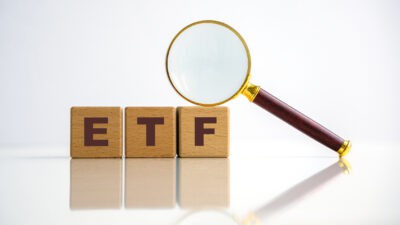On Tuesday this week, the Reserve Bank of Australia (RBA) raised interest rates yet again. It was the 11th rise in the past 12 months. With rates now well and truly above the near-zero levels we had become used to, cash investments like term deposits are a lot more appealing today than they were a year ago. So let's check out whether investors in the Vanguard Australian Shares Index ETF (ASX: VAS) might be better off switching to cash.
The Vanguard Australian Shares ETF is the most popular index fund on the ASX. This exchange-traded fund (ETF) allows investors to gain exposure to the S&P/ASX 300 Index (ASX: XKO). In essence, it is an investment in the largest 300 public companies listed on the Australian share market.
Thus, an investment in the VAS ETF can be thought of as an investment in the ASX itself.
This was a very appealing investment when interest rates were near-zero across 2020 and 2021. You got exposure to the compounding capital growth of shares, as well as the dividends and franking credits that this ETF passes through to its investors. In contrast, a term deposit would get you a 1% yield on your money, if you were lucky.
But today, the tables have turned. A term deposit can get you as much as a 5% annual return on your money right now. And that's before the latest interest rate rise has filtered through.
And a term deposit comes with none of the volatility that the share market brings. If you lock your money up for 12 months at a 5% interest rate, it's guaranteed to be there when you come back for it.
In contrast, a sharemarket-based index fund like the Vanguard Australian Shares ETF comes with no guarantees. There's no guarantee that you're capital will be safe. And there's no promise that last year's dividends will match this year's.
With all that in mind, does a term deposit make for a better investment than the VAS ETF today?
Should investors just choose a term deposit over Vanguard's VAS ETF?
Well, it depends. If you're a retiree, where preservation of capital is more important than anything else, then perhaps a term deposit would suit your goals better. 5% isn't a bad yield, exceeding what many ASX dividend shares offer. It certainly has the potential to offer some meaningful cash flow.
But for other investors who might have a higher tolerance for risk and share market volatility, the Vanguard Australian Shares ETF might still be a better option for one simple reason: the potential returns.
The Vanguard Australian Shares ETF has a long history of delivering returns that well exceed 5% per annum. As of 31 March, the VAS ETF has returned an average of 8.06% per annum over the past decade, and 8.88% per annum since its inception in 2009. Those returns include dividends.
Now, past performance is no guarantee of future success, of course. But a general rule of investing is that lower risk equates to lower returns. ASX-based ETFs have always outperformed cash investments over long periods of time, as we have discussed here at the Fool on many occasions.
So if I had the choice between putting the majority of my wealth in term deposits or ASX shares, I would choose ASX shares every time. Cash is great for emergencies and for funding living expenses. But not much else.







